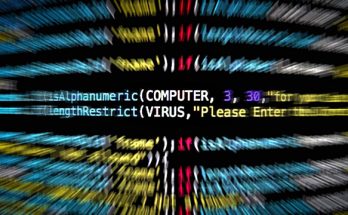Table of Contents
Did you know that web sites can be hacked? If you read the newspaper you most likely already know that, however it could not be so easy to understand when it actually happens to YOUR web site. To help you with that, we'll enumerate eigth basic signs which often mean that your web site has been hacked for good.
- 1. The browser's Red Screen of Death
- 2. Your site sisappears
- 3. Your site loads super-slow or crashes
- 4. Your site displays (or redirects to) another page or website
- 5. You find Viagra and/or Cialis and the likes references all over the site
- 6. The admin section of your site doesn't look like the same.
- 7. There are weird code fragments and/or snippets (most likely ads) within your pages.
- 8. The e-mail messages coming from your web site are sent to the Spam folder and/or flagged as Spam.
What to Do If Your Website is Hacked?
There are various spots your hack could be stowing away, including your core files, themes, database, .htaccess, and even your server itself. When you come to know that your website is hacked, you will need to overwrite the dubious documents with clean ones—you ought to have a reinforcement of your records and database, therefore. We prescribe you store these back-ups offsite. What's more, once you've sorted the hack, you'll need to take step anticipating future hacks. More on that in a moment. Initially, how about we endeavor to discover where the hack is.
1. Check the core files
Core files, however aren't restricted to functions.php, index.php, and 404.php. Check for changes to these records by reviewing the date last adjusted. Normally it will be an unexpected date in comparison to your different documents. Overwrite the present documents with clean duplicates on the off chance that you can.
2. Check your Plugins
Two or three things to remember with regards to site security and plugins:
- Never utilize pilfered subjects or plugins. They are quite often hacked.
- Continuously stay updated with the latest to help anticipate site hacks.
- Ensure all the plugins on your site are really ones you've introduced—here and there hacks will appear as phony modules that look honest to goodness.
- When searching out hacks, check the adjustment dates of plugins.
3. Check for Backdoors
This one is the hardest hack to recognize and settle so in the event that you've influenced it to this point, to ask the website admins to clean the hacked site cleanup. The reality of the situation is, whether you wind up cleaning a site, again and again, there is likely a secondary passage on the site that you have to discover and evacuate—else it will simply keep on being more than once hacked.
4. Secure Database
Look your database for spam things. In the event that you see spammy posts/pages on your site that you didn't compose, this implies your database has been hacked.
5. Check the Server
On the off chance that your site is hacked at the server level, it's frequently a smart thought to change facilitating suppliers. Master tip: don't reuse any of your passwords if this happens.
6. Check the .HTACCESS file
When managing pernicious sidetracks, the hack, for the most part, lives in yours.htaccess record.
7. Update everything
The obsolete software is the main source of hacking.
8. Change your Password(s)
It's best to expect that passwords have been compromised, so make sure you change it.
9. Check if there are more than one Admin
Your site ought to have a few administrators so bring down the level and number of admin.
10. Schedule Backups
What's more, similar to we said before, have a backup of the website.
Cleaning a hacked website
Cleaning up a hacked website can be a most painful and difficult process. If you want to clean up your site, you can check out Comodo’s CWatch website malware removal software. It comes with 24/7 website monitoring and a powerful website application firewall, which blocks attacks before they even reach your website. Most importantly, it clean up your website if it ever gets hacked.
We hope this article helped you look for how to know and things to do when your site is hacked.



